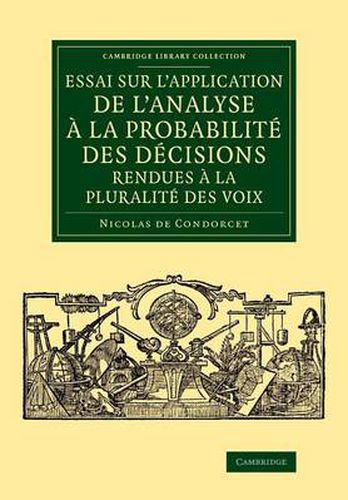Readings Newsletter
Become a Readings Member to make your shopping experience even easier.
Sign in or sign up for free!
You’re not far away from qualifying for FREE standard shipping within Australia
You’ve qualified for FREE standard shipping within Australia
The cart is loading…






A central figure in the early years of the French Revolution, Nicolas de Condorcet (1743-94) was active as a mathematician, philosopher, politician and economist. He argued for the values of the Enlightenment, from religious toleration to the abolition of slavery, believing that society could be improved by the application of rational thought. In this essay, first published in 1785, Condorcet analyses mathematically the process of making majority decisions, and seeks methods to improve the likelihood of their success. The work was largely forgotten in the nineteenth century, while those who did comment on it tended to find the arguments obscure. In the second half of the twentieth century, however, it was rediscovered as a foundational work in the theory of voting and societal preferences. Condorcet presents several significant results, among which Condorcet’s paradox (the non-transitivity of majority preferences) is now seen as the direct ancestor of Arrow’s paradox.
$9.00 standard shipping within Australia
FREE standard shipping within Australia for orders over $100.00
Express & International shipping calculated at checkout
A central figure in the early years of the French Revolution, Nicolas de Condorcet (1743-94) was active as a mathematician, philosopher, politician and economist. He argued for the values of the Enlightenment, from religious toleration to the abolition of slavery, believing that society could be improved by the application of rational thought. In this essay, first published in 1785, Condorcet analyses mathematically the process of making majority decisions, and seeks methods to improve the likelihood of their success. The work was largely forgotten in the nineteenth century, while those who did comment on it tended to find the arguments obscure. In the second half of the twentieth century, however, it was rediscovered as a foundational work in the theory of voting and societal preferences. Condorcet presents several significant results, among which Condorcet’s paradox (the non-transitivity of majority preferences) is now seen as the direct ancestor of Arrow’s paradox.